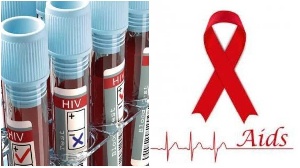- Home - News
- Elections 2024
- News Archive
- Crime & Punishment
- Politics
- Regional
- Editorial
- Health
- Ghanaians Abroad
- Tabloid
- Africa
- Religion
- Photo Archives
- Press Release
General News of Tuesday, 13 May 2025
Source: www.ghanawebbers.com
Western Region ranked fifth according to the HIV prevalence rate indicators
Western Region Sees Drop in HIV Prevalence Rate
The Western Region of Ghana has reported a significant drop in its HIV prevalence rate. The rate fell to 1.55% in 2023, down from 2.7% in 2021 and 2022. This reduction is attributed to interventions by the Ghana AIDS Commission.
Despite this improvement, the current figure is slightly above the national average of 1.53%. The Western Regional Office of the Ghana AIDS Commission played a key role in this achievement.
Dr. Felicia Amihere, the Western Regional HIV Coordinator, shared insights on treatment efforts. She noted that people diagnosed with HIV are now on antiretroviral treatment and monitored closely for adherence.
“Clinical evidence shows that those on treatment with suppressed viral loads have fewer symptoms,” Dr. Amihere explained. She emphasized that increased adherence to medication has contributed significantly to reduced infections.
Ellembelle District Has Highest Prevalence Rate
According to the National AIDS Commission estimates for 2023, Ellembelle District has the highest HIV prevalence rate at 2.32%. Dr. Amihere linked this high rate to its proximity to a francophone border with increased financial activity.
“Where there is money, sexual activity increases, leading to higher transmission rates,” she stated. Other districts with high prevalence include Tarkwa-Nsuaem at 1.84% and Wassa Amenfi Central at 1.11%.
Dr. Amihere also pointed out illegal mining (galamsey) as a factor driving transmission in these areas. She stressed the need for collaboration among agencies to tackle root causes of HIV spread.
Stigmatization Remains a Challenge
Dr. Amihere addressed ongoing stigmatization faced by HIV patients despite some decline in recent years. “Some patients fear disclosing their status due to potential divorce or mistreatment,” she said.
She encouraged individuals living with HIV to share their experiences openly, which could help prevent others from contracting the virus unknowingly.
Support from EQUIP Health Ghana has been crucial for progress in the region's fight against HIV.
National Overview of HIV in Ghana
In terms of national statistics for 2023:
- Greater Accra has the highest population of people living with HIV at 82,745 (24.7%).
- Regions with lower populations include North East (1,689 or 0.5%) and several others below 1,000 new infections each year.
New infections reported include:
- Greater Accra: 4,221
- Ashanti: 3,650
- Eastern Region: 2,096
- Western Region: 1,235
Overall, Ghana's total HIV population stands at approximately 334,095 individuals.
The Western Region's improvements reflect successful interventions by health organizations like the AIDS Commission and EQUIP Health Ghana.











